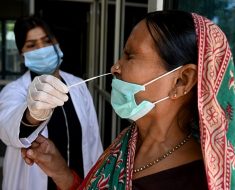
Physicians at Kennedy Krieger Institute recommend that children with autism spectrum disorder (ASD) receive screening for abnormally high or low cholesterol levels at least once during their childhood, as ASD is a risk factor for cardiovascular disease in both children and adults.
The recommendation resulted from a recent study that found reduced levels of high density lipoprotein cholesterol (HDL-C), known as the good cholesterol, in individuals from families with two or more children with ASD. In addition, they found reduced or elevated levels of other lipids, apolipoprotein A1 (ApoA1) and apolipoprotein B (ApoB). Individuals with low HDL-C levels or ApoA1 levels had lower adaptive functioning than other individuals with ASD.
The study’s results were published in Translational Psychiatry. Autism Speaks funded part of this study and supplied the plasma samples from participants in the Autism Genetic Resource Exchange (AGRE). Physicians from Children’s National Hospital in Washington, D.C. and the National Heart, Lung and Blood Institute of the National Institutes of Health also participated in the research.
“This latest research is part of our ongoing work to understand some of the co-occurring conditions with ASD,” said Elaine Tierney, MD, a child and adolescent psychiatrist with Kennedy Krieger Institute. “Our work indicates that lipids are abnormal in many individuals with ASD. Our findings, in addition to studies that show an increase in heart disease in individuals with ASD, lead us to recommend that children with ASD be screened for abnormal total and HDL cholesterol levels. We hope our work underscores the importance of cholesterol screening and raises awareness for families in the ASD community.”
Prior to the completion of this research, Dr. Tierney and her colleagues identified that Smith-Lemli-Opitz Syndrome (SLOS), a genetic condition of impaired cholesterol biosynthesis, is associated with autism. A 2007 study completed by her and other researchers led to a recommendation that all children with ASD be screened for SLOS if they exhibit some of its characteristics, such as slow growth, microcephaly, mental retardation and other birth defects, although the severity of this rare disease can vary.
Source: Read Full Article





